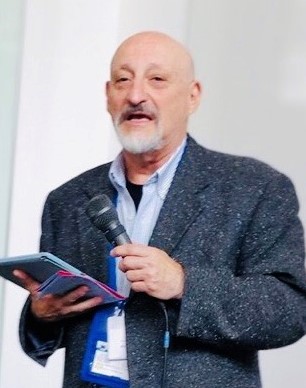Thermodynamics 2.0 | 2022 Program: Sessions and Abstracts
Mon - Wed, July 18 - July 20 , 2022 , Boone, North Carolina
Session P01: Keynote and Plenary (I)
9:30-11:30. Monday July 18, 2022
Chair: Eric Marland
Title: Why Science doesn’t Speak with One Voice
Presenter:
(Centre for the Study of the Sciences & the Humanities (SVT) University of Bergen (UiB), Norway )
Bio-sketch
Silvio Funtowicz began his career teaching mathematics, logic and research methodology in Buenos Aires, Argentina. During the 1980s, he was a Research Fellow at the University of Leeds, England. Until his retirement in 2011, he was a scientific officer at the Joint Research Centre of the European Commission (EC-JRC). From February 2012 until April 2021, he was an Adjunct Professor at the Centre for the Study of the Sciences and the Humanities (SVT) at the University of Bergen, Norway, where he is now a guest researcher. He is a philosopher of science active in the field of science and technology studies. Silvio.Funtowicz@uib.no https://www.uib.no/en/persons/Silvio.Oscar.Funtowicz Wikipedia: Silvio Funtowicz, Post Normal Science, NUSAP @SFuntowicz
Author(s):
(Centre for the Study of the Sciences & the Humanities (SVT) University of Bergen (UiB), Norway )
Abstract:P01.106
Abstract
Thermodynamics as a science of complexity offers powerful tools for exploring the realm of the living world, in their biological and social dynamics. Complex systems involving our species are also reflexive, and the inherent normative aspects cannot be effectively externalized from our scientific endeavors. The need to acknowledge and manage this entanglement is becoming quite clear, as we deal with critical challenges of our times.
The effort to provide advice for the Covid-19 pandemics has shown that there is no privileged relevant expertise or technoscientific silver bullet. Covid-19 has taught us that Science does not speak with one and undisputed voice. It also showed that the range of disciplines that were consulted was mostly limited to a biomedical elite, along with modelers and economists. It thus revealed that the framing of policy problems is still anchored on the Modern State model of legitimation in which complexity is ignored, and facts are treated as independent of values and of what is at stake.
Post-Normal Science (PNS) emerged as a problem-solving strategy that is appropriate when facts are uncertain, values are in conflict, stakes high and decisions urgent. Under those conditions the ideal of Truth gives way to Quality. In PNS quality is understood as fitness for purpose. It is operationalized through a dialogue between the experts and the extended peer communities.
We have still to learn that useful knowledge does not speak only in the language of science. It requires instead a transdisciplinary effort where a plurality of styles of personal ‘knowing-how’ from experience complement the disciplined ‘knowing-that’ from textbooks. In this transition, thermodynamics can offer a fruitful choreography of metaphors, in which simple, complex, and reflexive systems become characterized by energy, entropy and quality. These serve as guiding principles for studying their dynamics and for acting consciously within them.
The Covid pandemic is part of several challenges facing humanity today, such as the collapse of ecosystems, the loss of biodiversity and, in general, sustainability transitions. These all share the PNS conditions in the context of persistent extreme inequalities, weak democratic institutions, growing authoritarian temptations, and fantasies of techno-scientific silver bullets.
To give effective support to decision-making and political action, Science must not continue to pursue the unattainable goals of precise prediction and total control but should rather participate in a collective effort for the creation of responsible and anticipatory knowledge.
Keywords: post-normal science, complexity, quality, extended peer communities
